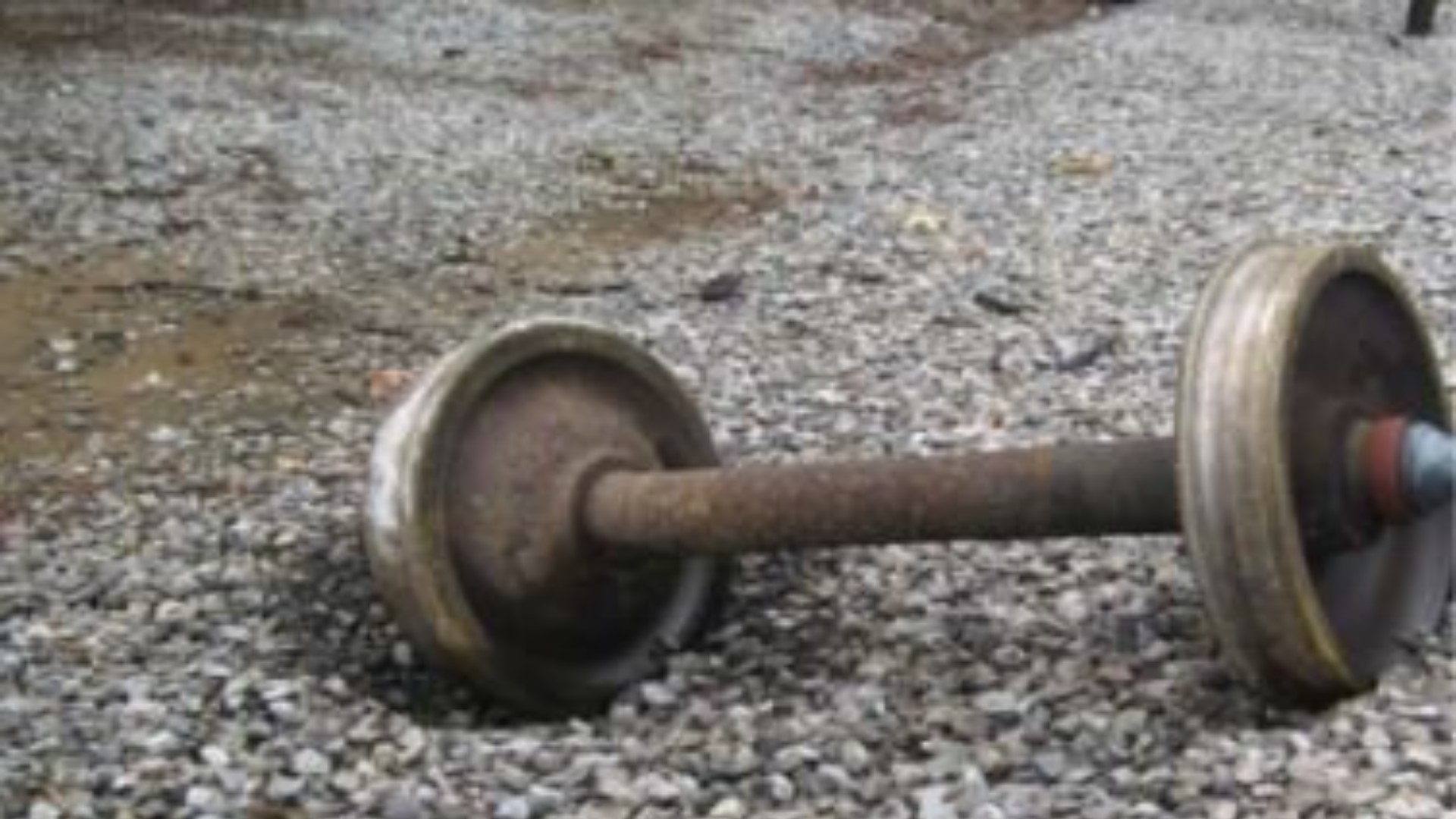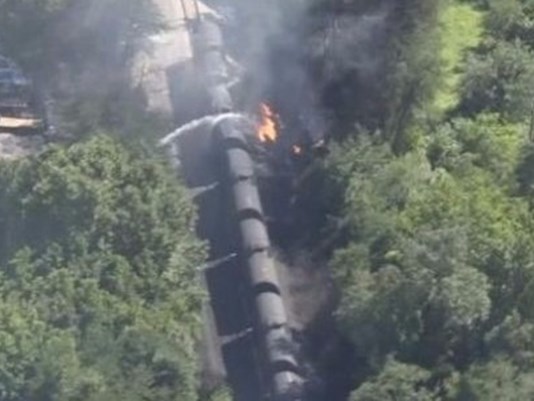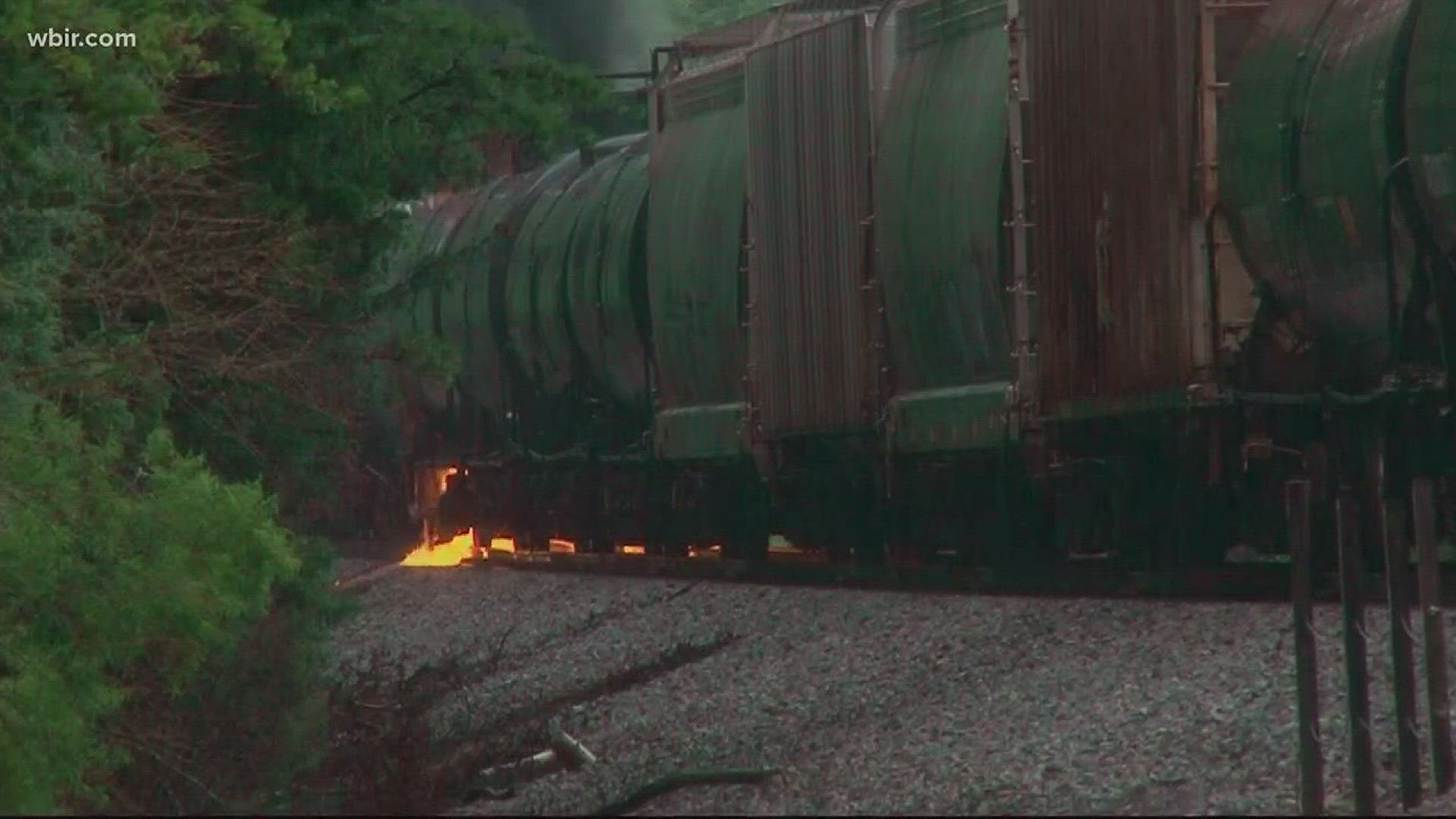Details into what caused the CSX train derailment that sparked one of the largest emergencies in Blount County's history have finally emerged after a federal investigation spanning more than two years wrapped up.
The Federal Railroad Administration found there was an undetected mechanical failure that caused the initial derailment the night of July 1, 2015. It subsequently led to a tanker fire that contaminated the immediate air, ground and water with acrylonitrile, a toxic and flammable substance.
The report goes into great detail of the events leading up to the derailment and subsequent findings.
The FRA said the probable cause of the derailment was the failure of a roller bearing on the second axle of the 37th car. The report said the bearing overheated and failed on UTLX 901717, the car that eventually caught fire.

The investigation revealed the failure occurred miles before the crew noticed, with the derailed car dragged 8.6 miles from the time it derailed to the point the train stopped.
Investigators concluded the crew did nothing wrong, though, because hot box detectors designed to warn them about overheated bearings did not signal any problems. Also, an events recorder confirmed the crew was acting appropriately up and to the point that the engineer noticed sparks coming from the train, according to the report.
A motorist at the Mt. Tabor Road crossing also noticed sparks and flames coming from the train as it passed, calling it in to 911 before fire crews with the Maryville Fire Department were dispatched.
The report said the hot box detectors along the railway did not pick up the impending failure of the overheated bearing because it happened suddenly without a gradual heating process. The report also said the tracks did not cause or contribute to the derailment.
The investigation concluded the roller bearing malfunction was solely to blame for the derailment, causing the lead axle to break and prompting a hot wheel to burn through the tank, igniting the fire. More than 24,000 gallons of acrylonitrile ignited as the flammable substance leaked.
According to the FRA, derailments due to a roller bearing failure happen relatively often, and CSX trains had two such failures, including the Maryville derailment, in 2015. More than 20 trains not with CSX experienced similar issues in 2015, but these numbers have declined over 15 years with the installation of hot box detectors.
The FRA said the failed roller bearing is in the hands of CSX right now subject to its evidence preservation in ongoing legal battles. CSX says the bearing had been inspected visually but not put through destructive or physical testing because company personnel did not believe it revealed any more useful information.
You can read the full FRA report at this link.
In the wake of the fire, some residents, reliant on well water, were concerned about groundwater contamination. A year after the derailment traces of the acrylonitrile were present.
Acrylonitrile is used in the manufacture of acrylic acid, which is used in manufacturing adhesives, paints and textiles, according to a summary of acrylonitrile from the Environmental Protection Agency.
Prolonged exposure to the chemical has been observed to cause headaches, dizziness, nausea and increases the potential for lung cancer, according to the summary.
A Blount Memorial Hospital spokesperson told 10News some first responders needed medical treatment after exposure to the burning chemical, as it can turn to cyanide in the blood.
A lawsuit was filed by Blount County deputies and Alcoa police officers against CSX Transportation Inc. shortly after responding to the derailment. They allege they had breathing and other health problems after helping evacuate residents in the area.
The tanker was owned by Union Tank.
By February 2017, all but one person in that same group settled the lawsuit.
The settlement between the group and CSX was confidential.

An Atlanta-based attorney filed for two families. One family, Wendy and Manuel Toledo, claimed Wendy suffered a miscarriage a month after a derailment, from emotional and physical stress.
In June 2016, two other lawsuits were filed in the Blount County Circuit Court against CSX.
An Atlanta-based attorney filed for two families. One family, Wendy and Manuel Toledo, claimed Wendy suffered a miscarriage a month after a derailment, from emotional and physical stress.
The second family, James and Shirley Andies, made a claim of negligence and battery.
When this derailment happened, departments all across East Tennessee pitched in to assist however they could.
Residents were elated after the 36-hour wait before they could go home.
"Oh yes, ain't nothin' like home. No place like home," John Muhlhauser said to 10News in a 2015 interview.

